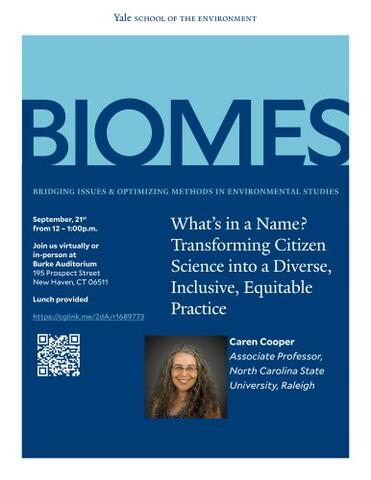Citizen science involves engaging members of the public in the production of new knowledge, irrespective of their scientific training. In contrast to local, grassroots efforts of community science, the massive, collective efforts of citizen science frequently occur across large spatial extents at fine-spatial resolution, producing insights that are not possible by any other method. Citizen science projects can aggregate contributions from millions of people, yet the vast majority of participants represent a strikingly narrow demographic profile that matches the dominant culture group in science and fails to engage marginalized peoples historically excluded from mainstream science. Consequently, citizen science data are representative of white, affluent ecologies. There are ironies in the challenges of diversity, equity, and inclusion in citizen science: the field explicitly aspires to be accessible to everyone by not gate keeping based on credentials, the field itself struggles to be included as credible, rigorous science, and problematic terminology is symptomatic of extractive practices. The culture of the participatory sciences, specifically the lack of racial and economic diversity in citizen science, has consequences for research inquiry, data quality, and environmental justice. This talk will provide a peek into two field-building initiatives: The Data Ethics Toolkit for Participatory Sciences, and the Inclusive, Diverse, Equitable, Accessible, Large-scale (IDEAL) Participatory Science Working Group.
Lunch will be provided.
